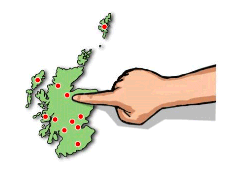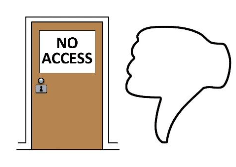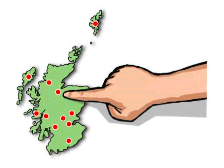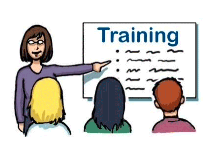Supported employment: review report - easy read
Easy read version of an independent review of supported employment in Scotland commissioned by Scottish Government.
What we found out

We wanted to know how people access supported employment. We wanted to know how good the support was.
We found out 3 main things:
1: The mix of supported employment is complicated

Fair Start Scotland has national contracts for Supported Employment services. This means they cover the whole of Scotland.
Councils give local contracts for Supported Employment. This means they cover the council area only. Each council decides what sort of support they need.

This makes it difficult to find out what sort of support is available. Most Councils have a supported employment service.
The review found that local services had many benefits. But it can be difficult for people to know what support is available.

We found that not everyone had been able to access services.
It can be challenging for the Scottish Government to know what each council has.
2: The number of people accessing supported employment is different in different areas

The number of people using services is different in different areas. This may be because services are different in different areas.

5 councils do not offer any supported employment. Other councils have good services. This means that some people who might need supported employment have good services but others have none.

Funding is also different in different council areas. Some supported employment services are better funded than others.

There is also a wide range of supported employment through Fair Start Scotland. In 2 areas, there were no people getting supported employment.
3. Access to supported employment could be better for clients with learning disabilities and autistic people

We do not know how many people with a learning disability or autism are getting supported employment.

Disabled people are often counted together. People with learning disabilities are not always counted separately. This makes it hard to know how many are getting this service.

Fair Start Scotland gets most of its referrals from Job Centre Plus. Therefore they are less likely to reach people with complex learning disabilities. Most supported employment clients had mental health conditions like anxiety or depression.

We think access could be better for autistic people and people with learning disabilities.
What we found out
Some supported employment services are better than others.
There are a range of supported employment models.
Some are very good. There was a wide range of outcomes.

Different areas have different kinds of supported employment.
All supported employment should be a good service. There needs to be clear standards.

There was a wide range of outcomes reported. The funding in every council was different. Councils that spend more money supported more people into employment.
Services being funded means they can train and keep staff.

Service Providers say that being paid on results of getting people jobs is difficult. It can be a barrier to getting local funding. Supported employment needs time at the start before a person gets a job. People need support to start to prepare for employment.

Some funding is also linked to people getting a job over 16 hours a week. This can be hard as some people may need to build up to this.

It can be difficult to offer good employment in rural areas. There are less local services and issues of access to transport.
There are no standards across Scotland. We are working on this.

Services were different in different areas. There are no standards for good quality. This makes it difficult to understand how good services are. Central standards may help.

Work is being done to develop this. This will look at all stages of supported employment and the organisation as well.

Councils have done some work to develop standards. They would like there to be central standards. They can speak to other councils about their work and arrange to have the same standards in all councils in Scotland.
There are examples of good employer engagement, but we need to increase working together

There were some strong relationships between services and employers. These have grown through working together.

We are developing new ways to work with employers. These show the strengths of people with learning disabilities.

It is important to work together to build relationships with employers. There are examples of good engagement with people with lived experience. There is an opportunity to do more on this.

There was a request for more people with lived experience on boards of organisations working in them.

Long-term working together can be difficult due to fixed term funding and contracts. Funding can also make it difficult to support people with learning disabilities. They may need more support and for longer.
There is positive work to develop staff

There is work to develop staff with training.
The Professional Development Award in Supported Employment was the best qualification for staff. The award may need updated due to COVID- 19.

There may need to be a different course for new members of staff. The qualification should be looked at to make sure it is accessible for individuals with learning disabilities.

Services also said it can be difficult to recruit staff and find funding for new staff.
Contact
Email: Boswell.mhonda@gov.scot
There is a problem
Thanks for your feedback